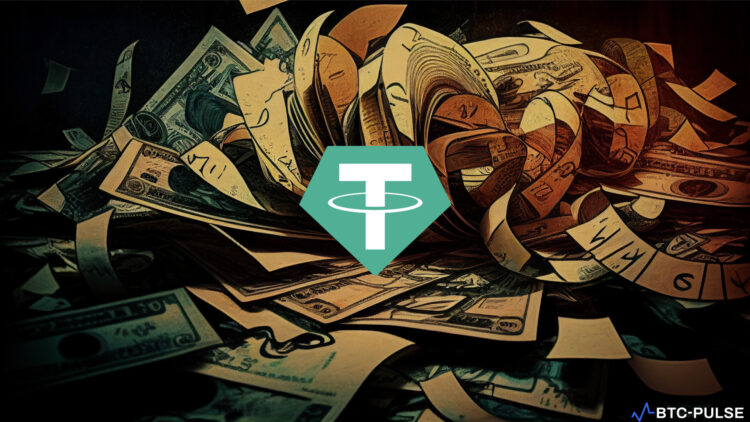Deep Dive into the UN Report’s Findings
The UN’s report paints a concerning picture of cryptocurrency usage in illegal operations. Focusing on the Tron blockchain’s version of USDT, the report alleges that its stability, anonymity in transactions, and low fees make it an attractive tool for money launderers and other criminal elements in East and Southeast Asia. This insight sheds light on the growing intersection between digital currencies and transnational crime.
Tether’s Counterarguments
In its response, Tether meticulously addressed each point raised by the UN. The company stressed that the report largely ignores the inherent traceability of blockchain transactions. Unlike traditional cash-based systems, blockchain ledgers provide a permanent, immutable record of all transactions, which can be invaluable in criminal investigations.
Tether’s Contributions to Financial Security
Tether’s efforts in freezing assets linked to criminal activities demonstrate a strong commitment to financial security. The company detailed its proactive stance in recent months, freezing significant amounts of USDT in coordination with law enforcement agencies. This action not only showcases Tether’s responsiveness but also its ability to act swiftly in the face of potential misuse.
Addressing Misconceptions
The report’s focus on the negatives of cryptocurrency usage in illegal activities overshadows the benefits digital currencies like USDT bring to the table, especially in regions with limited access to traditional banking. Tether argued that its services provide financial inclusion and empowerment, which is often overlooked.
The Role of Blockchain in Financial Monitoring
Tether emphasized that blockchain technology, contrary to the implications of the report, offers superior monitoring and tracking capabilities compared to traditional banking systems. The immutable nature of blockchain makes it a potent tool in the fight against large-scale money laundering, a point Tether feels was underrepresented in the UN’s analysis.
Tether’s Call for Educated Collaboration
Recognizing the gaps in understanding blockchain technology, Tether called for an informed collaboration between the crypto industry, global regulatory bodies, and organizations like the UN. Such collaboration, Tether argues, is essential for developing effective strategies to combat financial crimes in the digital age.
Strengthening Ties with Regulatory Bodies
Tether’s recent interactions with U.S. committees underscore its commitment to regulatory compliance and its role in shaping the regulatory landscape for cryptocurrencies. By sharing insights and data with these committees, Tether positions itself as a collaborative partner in the fight against illicit financial activities.
Impact of Tether’s Compliance Efforts
The data from Dune Analytics highlights the scale of Tether’s compliance efforts. By blocking a significant number of wallets linked to illicit activities, Tether demonstrates not just its technical capability but also its resolve to maintain the integrity of its platform.
Conclusion and Future Outlook
Tether’s comprehensive response to the UN’s allegations brings to light the nuanced and complex nature of cryptocurrency use in the global financial system. The company’s ongoing efforts to balance the benefits of digital currencies with the need for security and compliance offer a glimpse into the future challenges and possibilities in the evolving landscape of digital finance. As the industry matures, the role of companies like T
ether in shaping responsible and secure financial practices becomes increasingly crucial. Their proactive approach in addressing illicit activities, coupled with their call for greater collaboration and education, suggests a path forward where digital currencies can be harnessed for their full potential while minimizing their misuse.
The Road Ahead: Challenges and Opportunities
The situation presents both challenges and opportunities for Tether and the broader cryptocurrency market. As the digital currency ecosystem continues to expand, the need for robust, transparent, and cooperative regulatory frameworks becomes more apparent. Tether’s situation highlights the delicate balance between innovation in financial technology and the imperative to safeguard against criminal misuse.
Enhancing Global Financial Inclusion
Tether’s emphasis on the positive role of cryptocurrencies in developing economies is particularly noteworthy. By providing access to stable digital currencies, companies like Tether can play a significant role in enhancing global financial inclusion, especially in regions where traditional banking infrastructure is inadequate or non-existent.
Educating Stakeholders
Tether’s call for an educated collaboration underscores the importance of educating not just regulatory bodies and law enforcement agencies, but also the general public about the benefits and risks of cryptocurrencies. Enhanced understanding across all stakeholders is crucial for developing balanced policies that encourage innovation while protecting against financial crimes.
Leveraging Technology for Better Compliance
The advancements in blockchain technology offer unprecedented opportunities for monitoring and regulating financial transactions. Tether’s case demonstrates how technology can be leveraged to enhance compliance efforts and provide regulators and law enforcement agencies with the tools they need to combat illicit activities effectively.
Conclusion
In conclusion, Tether’s response to the UN report is a significant moment in the ongoing dialogue about the role of cryptocurrencies in the global financial system. The company’s efforts to address concerns, enhance regulatory compliance, and promote a deeper understanding of blockchain technology set a precedent for how crypto firms can navigate the complexities of a rapidly evolving financial landscape. The future of cryptocurrencies like USDT will likely be shaped by the ability of issuers, regulators, and the global community to work together in ensuring a secure, transparent, and inclusive financial ecosystem.










